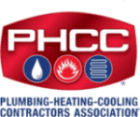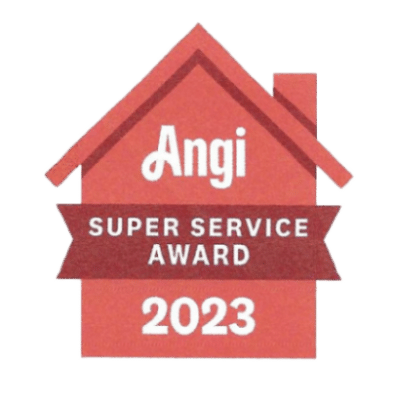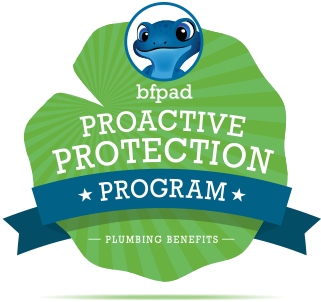
Emergency Plumber Guide To Sewage Spills | Irving, TX
The foul odor is not all you have to deal with when you have a sewage leak in your home. Some might say sewage exposure is a thing of the past since it was common during a time before modern plumbing systems. While most modern sewage systems help prevent sewage exposure, the risk remains under certain circumstances. Raw sewage can be a serious health risk, so you might want to call an emergency plumber in Irving, TX, as soon as possible. This post will explain everything you need to know about sewage spills.
How Can You Be Exposed To Raw Sewage Today?
Some of the most common ways you can be exposed to raw sewage today include:
- Overflowing septic tanks: Waste from septic tanks is a combination of solid waste, wastewater, and excrement. Any of these things can have many negative health effects.
- Call an emergency plumber immediately when you notice the septic tank is overflowing.
- Overflowing toilets: A clogged toilet may easily overflow if the blockage is not swiftly and thoroughly removed. Call an emergency plumber for assistance after a few unsuccessful efforts at plunging.
- Backed-up sinks and tubs: The sewer water that an overflowed sink or bathtub brings may be dangerous to your health. Contact a plumber for help if you have a backed-up sink or tub.
- Backed-up floor drains: The sewer system may become overburdened and back into people’s homes during heavy rain. The lowest drain in a home, for instance, the basement floor drain, is most likely to have this issue. Call an emergency plumber if you notice the basement floor drain is backed-up.
How to Prevent Exposure to Sewage
The best strategy to lessen your chance of exposure to sewage is to maintain your plumbing. Some of the most crucial advice we can give is to avoid flushing anything other than toilet paper down the toilet( including “flushable” wipes) and grease, oils, or fats in your kitchen sink.
Additionally, keep an eye out for any unpleasant smells in the house or damp areas in your front yard that could be signs of a sewage backup. The likelihood of exposure to sewage is reduced the sooner you fix the problem. Call an emergency plumber if you notice any signs of a sewage backup.
Health Risks of Sewage Exposure
The main health risks of sewage exposure include:
Viruses
Gastroenteritis, which is sometimes mistaken for the stomach flu, can be brought on by viruses. This virus can result in severe vomiting, nausea, cramps, diarrhea, and abdominal pain. Poliomyelitis, another infection, can paralyze a person temporarily or even permanently. It is typical to experience symptoms such as a sore throat, fever, nausea, vomiting, constipation, and stomach pain.
Bacterial Infections
You can get a bacterial infection if exposed to untreated and uncleaned sewage. Bloodborne infections have the potential to develop into potentially fatal conditions. Campylobacteriosis is a bacterial illness resulting in vomiting, fever, cramps, and bloody stools.
E. coli is a more prevalent bacterial infection linked to sewage exposure. Left untreated, it can progress into severe hemolytic uremic syndrome, leading to kidney failure or even death. E. coli symptoms include, among other linked problems, nausea, vomiting, stomach pain, and fever. Giardiasis and Cryptosporidiosis can both be brought on by common waterborne parasites. These two conditions, which can result in symptoms similar to those mentioned above, are among the most prevalent in the U.S. Call an emergency plumber in Irving, TX, when you notice a plumbing issue so you don’t get ill from sewage exposure.
Dos and Don’ts When Dealing with a Sewage Backup
Do:
- Assume that all things touched by the sewage are contaminated even if they are dry:
- Even after moisture is eliminated, disease-causing pollutants will still be present.
- Turn off electrical systems if they can be accessed: Water and electricity don’t mix.
- Contact an emergency plumber: A plumber can help with the pumping and determine the sewage spill’s cause.
- Remove children, pets, and seniors, and don’t allow them back into the affected area until the issue is remedied.
- Take any dry, uncontaminated things away
- Open windows to increase airflow into the area: Pollutants are in the air and the sewage material. Opening a window should help bring down humidity and start the drying process.
- Add small amounts of chlorine to stagnant water, preventing bacteria from spreading.
- Notify the insurance company that there has been a sewage spill in your home: Ensure you take multiple pictures of the water-damaged items and structures before cleanup begins so you can use them as proof for the insurance claims.
- Remove loose rugs and furniture from the affected area
- Turn off water sources that might be making the issue worse: If necessary, you may need to shut off the water.
- Clean and dry the affected clothes and footwear with hot water and soap: Do not mix these clothes with unaffected ones
- Disinfect any mops, brushes, and cleaners with a bleach solution after you are done cleaning
Don’t:
- Allow the sewage to sit: In addition to the germs and parasites in the sewage, the wetness produces a fertile environment for deadly mold growth. Uncontrolled drying causes pollutants to be released into the air.
- Handle the sewage material or affected materials without protective gear: You may find regular soaps and detergents are no match for the germs present in sewage water.
- Run the AC: Pathogens only present in the spill location will now travel throughout the entire structure and pollute the HVAC system.
- Transfer contaminated items into clean regions: Pathogens can spread onto surfaces they come into contact with, even if they are dry. Until they are decontaminated, place them in a secure staging area outdoors.
- Try using regular cleaning products, even those made for professionals, to clean buildings, belongings, or furniture. It takes specialized cleaners and disinfectants to eliminate bacteria, fungi, and other diseases safely.
- Try fixing the plumbing issue yourself: Contact an emergency plumber in Irving, TX, to check your plumbing system and fix the cause of the spill.
Emergency Plumbing Services You Can Count On
A sewage spill does not adhere to any specific schedule. It can happen at any time, and you may find yourself needing an emergency plumber. bluefrog Plumbing + Drain of North Dallas provides plumbing services 24/7. We’re available day and night to ensure you receive the best service possible. Whether it’s a weekend, a holiday, or the middle of the night, our plumbing technicians are always ready and willing to help.
If you suspect a sewage issue in your house or any other plumbing emergency, call 469-573-2535 or book an appointment online. We’ll fix the issue for you and get your home back to looking spectacular.



















